
Seeds are programmed to grow, but sometimes they seem stubborn. Remember these tips to increasing the odds of successful sprouting:
Seeds are alive, and the energy stores they contain deplete over time. Before sowing seeds leftover from prior years, roll several in a damp paper towel and set it in a warm spot. Check for germination every few days. If a good percentage sprouts, the packet is worth sowing. Storing seed in a cool, dry place—such as the refrigerator—extends its lifespan.
The seeds of most vegetables and annual flowers sprout quickly after sowing if kept moist and warm. Sow them in a potting mix formulated for seeds, water them well and keep them at room temperature. It’s the moisture that awakens them from dormancy so they begin to swell and grow. If the pots dry out after sowing, the seeds can easily die. You can soak just about any kind of seed in water for up to 24 hours before sowing them, and this usually shortens the time it take them to sprout.
Unlike annual species, most hardy perennial, tree and shrub seed will not germinate immediately after sowing. They require a chilling period (in nature, that’s winter). When sowing these seeds for the garden, dry cold storage is not sufficient; the seed needs to absorb water to sprout. To replicate winter, mix the seed with damp potting soil in a self-sealing plastic bag and place it in the refrigerator. The exact length of damp chilling depends on the plant, but 90 days is a safe bet. After this time, pour the contents of the bag atop a pot of potting mix, add more mix on top and set the pot in a bright, warm spot.
This story is from the March - April 2023 edition of Horticulture.
Start your 7-day Magzter GOLD free trial to access thousands of curated premium stories, and 9,000+ magazines and newspapers.
Already a subscriber ? Sign In
This story is from the March - April 2023 edition of Horticulture.
Start your 7-day Magzter GOLD free trial to access thousands of curated premium stories, and 9,000+ magazines and newspapers.
Already a subscriber? Sign In

Pot It Up
Shake up the containergarden with theseNorth America –native perennials

THE GARDEN PATH TO PERDITION
I WAS CRUISING RIGHT ALONG, feeling okay about myself, when I came across a list of the Seven Deadly Sins.
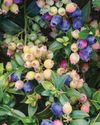
A Productive PATIO
Tiny fruit, vegetable and herb plants help gardeners maximize any sort of growing space
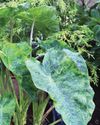
TROPICAL FUSION
A FUSS-FREE APPROACH TO USING BOLD TROPICAL PLANTS IN ANY TEMPERATE GARDEN

WINTER READING
Pass the time with any of these inspiring books
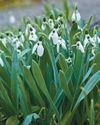
SENSING A PATTERN
Greg Coppa reflects on an odd weather year and what continued warming may mean for his Rhode Island garden
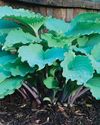
TOP-PRIZE PERENNIALS
A foliage masterpiece for shade and a late bloomer for sun

MARK WESSEL
What's new for fruit and vegetable gardeners?
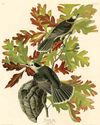
KINGS OF THE NORTHERN FORESTS
A look at the trees, shrubs and perennial plants that bolster life in Ecoregion 5

PROJECT FEEDERWATCH
Gardeners can help scientists know just where the birds are in winter